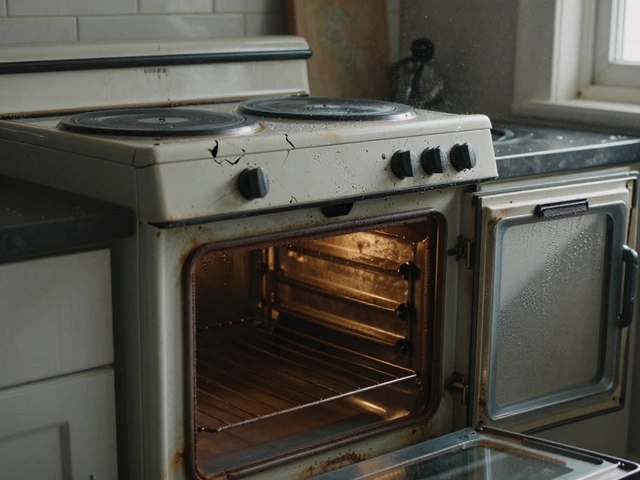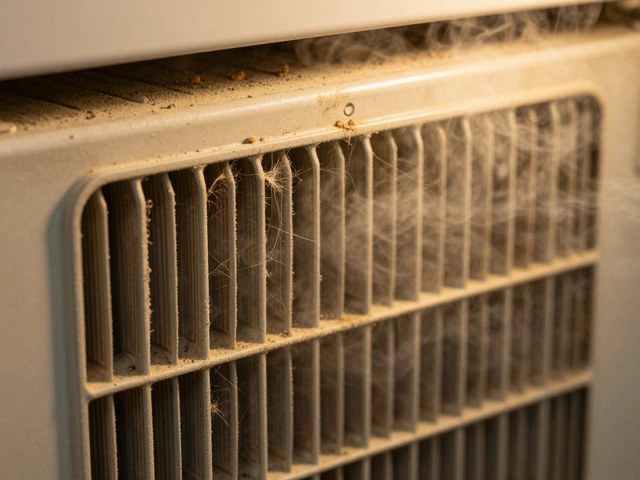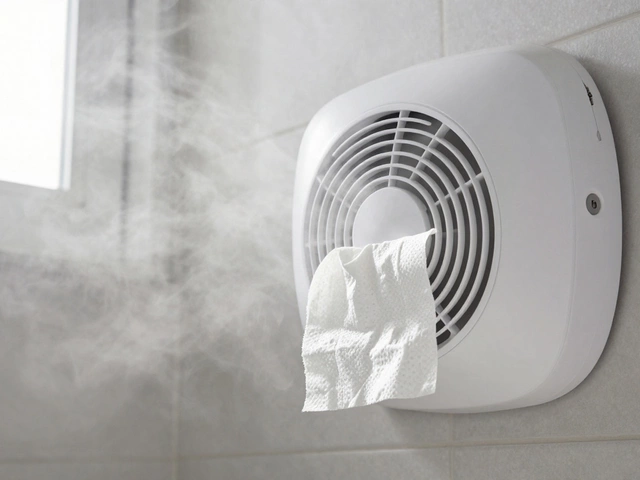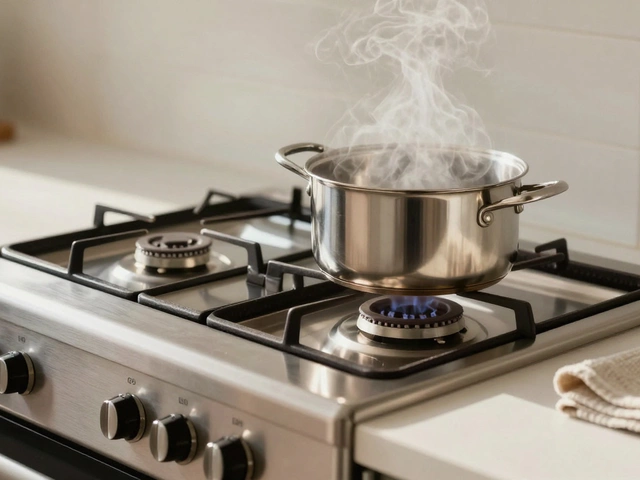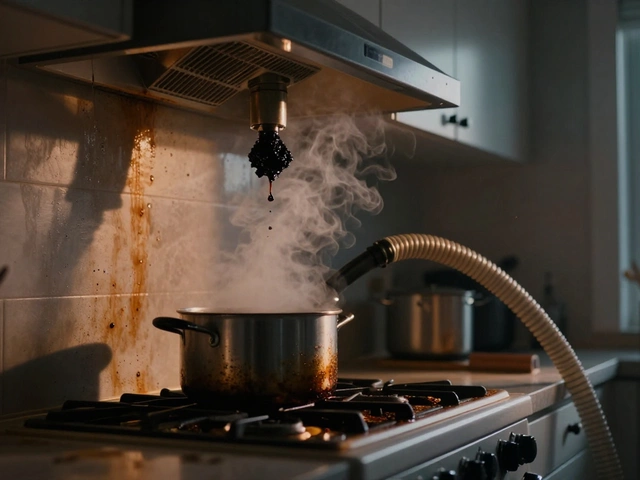If your boiler has been humming away for 15 years, you might wonder why it’s still going—or when it’s going to break down for good. Old boilers are kind of like that car that keeps passing its MOT with a wink and a prayer. Sure, they still run, but are they running smart?
The truth is, boilers aren’t built to last forever. Fifteen years is already pushing the high end for most models. By this point, you might start noticing colder rooms, weird knocking noises, or your energy bill creeping up. Even if it’s not giving up just yet, it’s probably working way harder (and using way more gas) than it did at year five.
If you’re holding out because repairs have seemed cheaper than buying a new boiler, you’re not alone. But is it really saving you money? Each year, technology gets a little better and a lot more efficient—so that old boiler might be quietly costing you in hidden ways. Stick around, and let’s see how the numbers really stack up.
- What Happens as Boilers Age?
- Running Costs: Old vs. New
- Warning Signs You Shouldn’t Ignore
- Is Replacement Really Worth the Money?
What Happens as Boilers Age?
After around 10-15 years, most boilers start showing their age—and not in a good way. The heating efficiency takes a hit, parts get shaky, and breakdowns become more common. According to a 2023 report from the UK’s Energy Saving Trust, the average boiler loses as much as 10-20% efficiency by the time it hits 15 years old. That means your old unit is burning up more gas for the same amount of heat you got before.
Here’s what really starts to go downhill:
- Boiler replacement gets tempting because repairs get pricier and parts harder to find.
- Heat exchangers can clog up or crack, which means less heat and more leaks.
- Electronic components—think sensors, thermostats, or the control board—start to fail more often and can be expensive to replace.
- Corrosion and rust, especially in older steel models, can cause water leaks and system failures.
- Boilers get noisier as limescale builds up and bits wear out, so you might hear banging or whistling from time to time.
"Boilers tend to reach a technical end-of-life around 12 to 15 years, after which repair costs and energy use often rise sharply." — Energy Saving Trust, Boiler Efficiency Advice Guide
| Boiler Age | Average Efficiency | Common Issues |
|---|---|---|
| 1-5 years | 90-95% | Minor wear, usually covered by warranty |
| 6-10 years | 85-90% | Sensor hiccups, early limescale buildup |
| 11-15 years | 75-85% | Heat exchanger trouble, leaks, noisy operation |
| 16+ years | Under 75% | Corrosion, main parts fail, more breakdowns |
If your bill is creeping up and your radiators are slow to warm, it’s probably not your imagination. That drop in output means you’re spending more each winter just to keep the place comfortable. Not the kind of nostalgia anyone wants.
Running Costs: Old vs. New
You’ve probably seen your heating bills creeping up and thought, “Is it really the boiler’s fault?” In short: yeah, it probably is. A 15-year-old boiler usually runs at about 60-75% efficiency. Compare that to new models, which hit 90% or even higher if you go for a high-end condensing version.
This means more of your money goes up the chimney with an old boiler. That’s not just bad for your wallet—it’s rough on the environment too. Energy experts say swapping out an old, low-efficiency unit for a new one can cut your annual gas bill by up to 30% depending on your usage. That’s not chump change, especially if you’ve got a big family or love keeping the place toasty in winter.
Let’s spell it out with some numbers so you can see the difference yourself.
| Boiler Age & Type | Average Efficiency (%) | Estimated Yearly Gas Cost* (£) |
|---|---|---|
| 15-year-old non-condensing | 65 | £1,200 |
| 10-year-old condensing | 80 | £1,000 |
| Brand new condensing | 92 | £850 |
*Based on typical UK household gas usage as of 2024.
Repairs can tip the scales, too. As boilers age, breakdowns come more often and they get pricier. A new heat exchanger is easily over £400, and that’s if nothing else goes wrong. Annual servicing also gets trickier as parts become harder to find for older models, so don’t be surprised if your engineer groans when they pop open the case.
- The real kicker: those repair costs add up. If you’re spending more than £300 a year on fixes, it’s usually smarter to invest in a boiler replacement instead of band-aiding the old one.
- Modern boilers often come with longer warranties. Some brands cover parts and labour for up to 10 years, meaning less out-of-pocket if something does go wrong.
Bottom line? The running costs of an old boiler hit you every month—not just when something breaks. Saving a bit in the short run can burn you over time, both in bills and surprise repairs. A new boiler’s upfront cost stings, but it usually pays off faster than most folks expect.

Warning Signs You Shouldn’t Ignore
A boiler that’s 15 years old won’t always quit without warning—it usually drops hints that it’s ready for retirement. Ignoring these signs can lead to bigger headaches and even costlier repairs down the road. Let’s break down what you need to look out for with your boiler replacement decision in mind.
- Weird noises: Clanging, banging, or rumbling sounds almost always mean trouble. Usually, this points to limescale buildup, broken parts, or pressure issues. A healthy boiler should hum, not rattle the kitchen cabinets.
- Frequent breakdowns: Calling the repair guy every other month? That’s not normal. Old boilers often have one part after another wear out, and repair bills can seriously pile up.
- Leaking or dripping: Water around your boiler is a sure sign of trouble. It usually means worn-out seals, faulty valves, or internal corrosion. Even a slow drip can lead to expensive water damage if ignored.
- Heating takes forever: If your radiators are lukewarm, or hot water runs cold after just a few minutes, the boiler’s likely struggling to keep up. That usually means efficiency is fading fast.
- Yellow flames: The flame in a gas boiler should be clear blue. A yellow or orange flame can mean poor combustion, which might release dangerous carbon monoxide. Never put this off—call a pro.
The older your boiler gets, the more likely it is to break down right when you need it most. According to UK government stats from 2023 (see table), the majority of emergency callouts for broken heating systems happen to boilers over 12 years old.
| Boiler Age | Chance of Annual Breakdown (%) |
|---|---|
| 0-5 years | 13% |
| 6-10 years | 24% |
| 11-15 years | 45% |
| 16+ years | 57% |
If you find yourself ticking off any of these warning signs—even just one or two—start planning for a replacement instead of just patching things up. Boilers rarely get better with age, and the risk of a total failure keeps climbing year after year.
Is Replacement Really Worth the Money?
This is what everyone wants to know when staring down the price tag of a new boiler. Is it really worth dropping a couple grand now if the old one is still plugging along? Here’s how it actually plays out in real life.
Old boilers (15 years and up) tend to run at about 60–70% efficiency, while new ones usually hit 90% or more. That’s not just marketing—it means less of your hard-earned cash is going up your chimney. According to the Energy Saving Trust, swapping an old, G-rated boiler for a modern A-rated combi can save the average UK household up to £300 a year on gas bills. That’s serious money over time.
| Boiler Type | Average Annual Running Cost (£) | Efficiency |
|---|---|---|
| 15-year-old boiler | £900 | ~65% |
| New A-rated combi | £600 | ~92% |
Straight away, that’s a £300 difference each year just on running costs. Now, factor in repairs—data from UK home warranties shows that boilers 10+ years old are much more likely to need repairs, often costing £150–£400 per callout. If you find yourself calling out an engineer a few times a year, you’re inching closer to what a brand-new system would cost in under a couple winters.
Still, for some people, replacing a boiler feels like a mountain. But here’s where the numbers grind it home:
- Modern boilers offer longer warranties (few old ones have any warranty left)
- You’ll almost always get quieter, more consistent heat
- Parts for really old models may not even be available anymore
A new boiler replacement will set you back anywhere from £1,800 to £3,000 (installed). That sounds steep, but if you’re spending £400+ a year on repairs and losing £300 a year on fuel bills, in less than 4 years, your new model practically pays for itself—and that’s not counting the headache saved on breakdowns in winter.
Bottom line: if your boiler is 15 years old and acting up, replacement isn’t just about avoiding a disaster. It’s about sharper efficiency, fewer surprise repairs, and money in your pocket. The math usually speaks for itself once you add it up.

